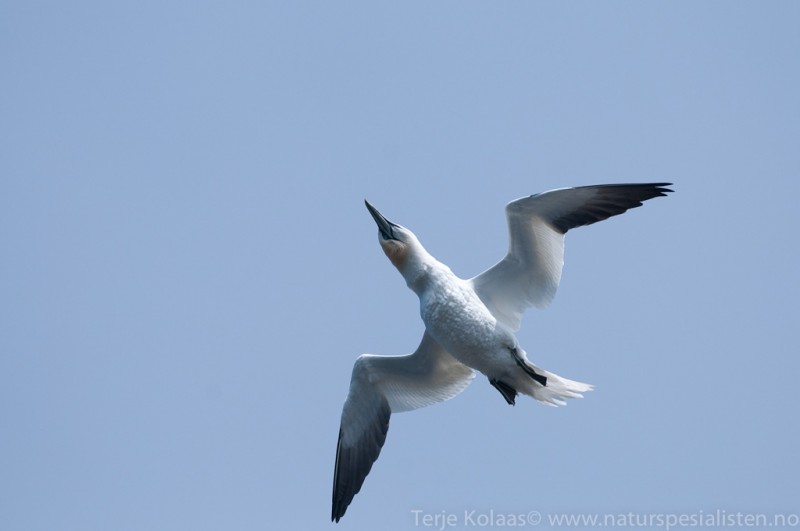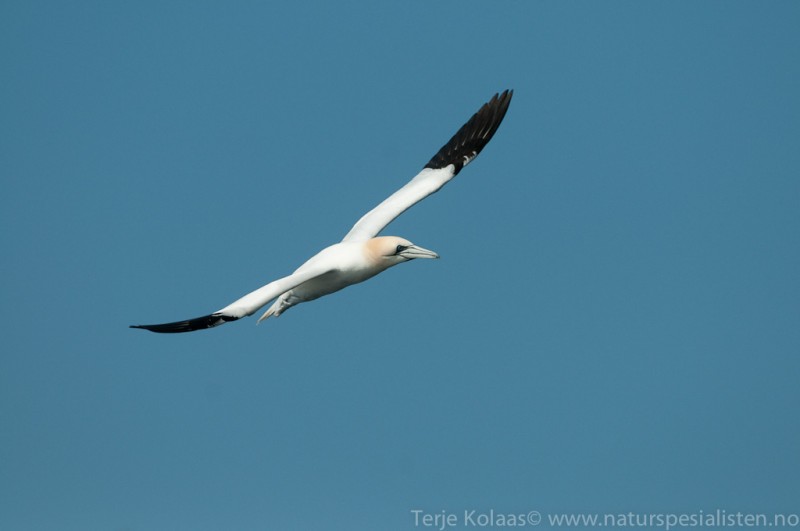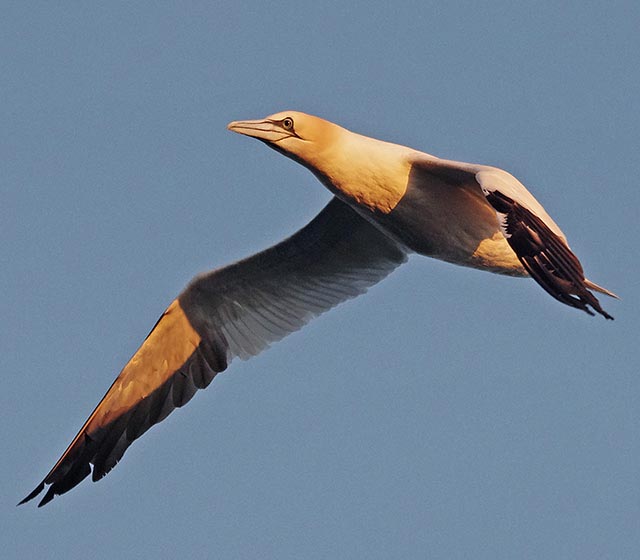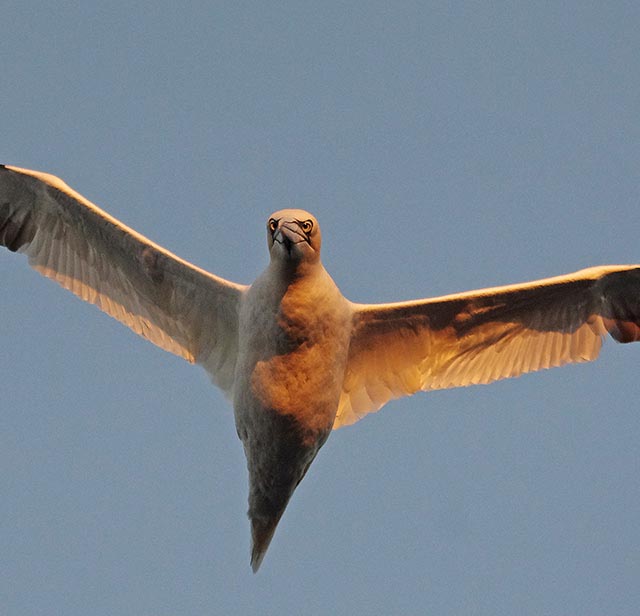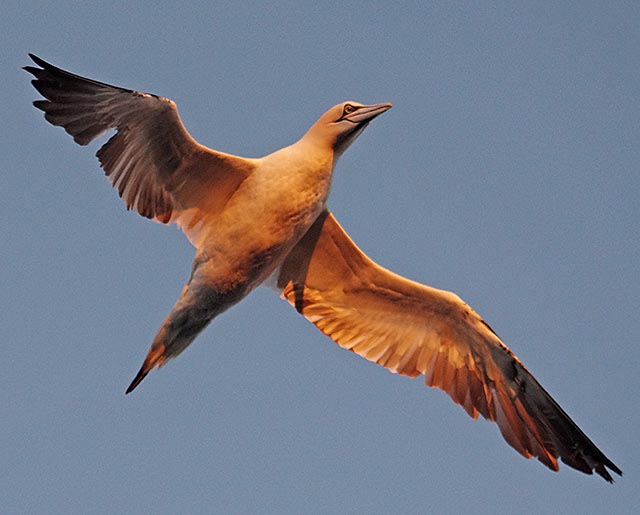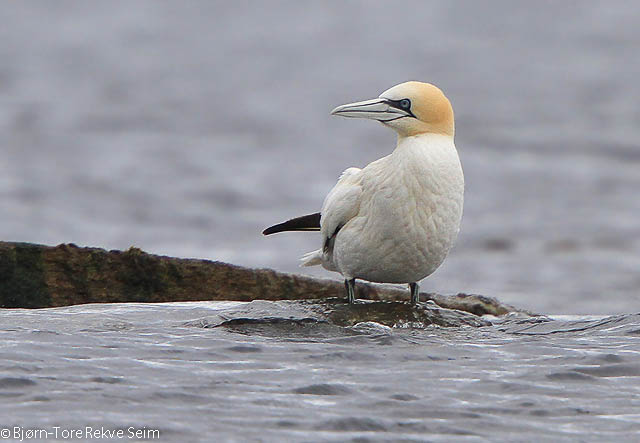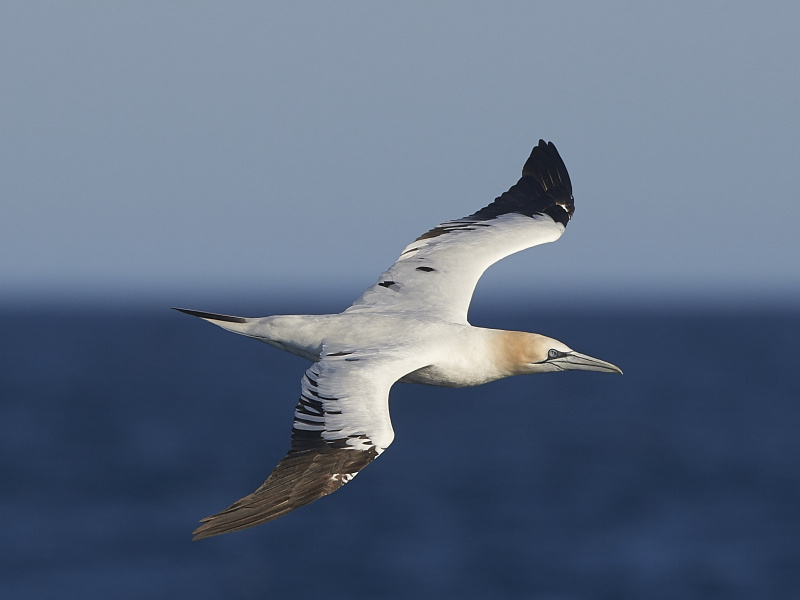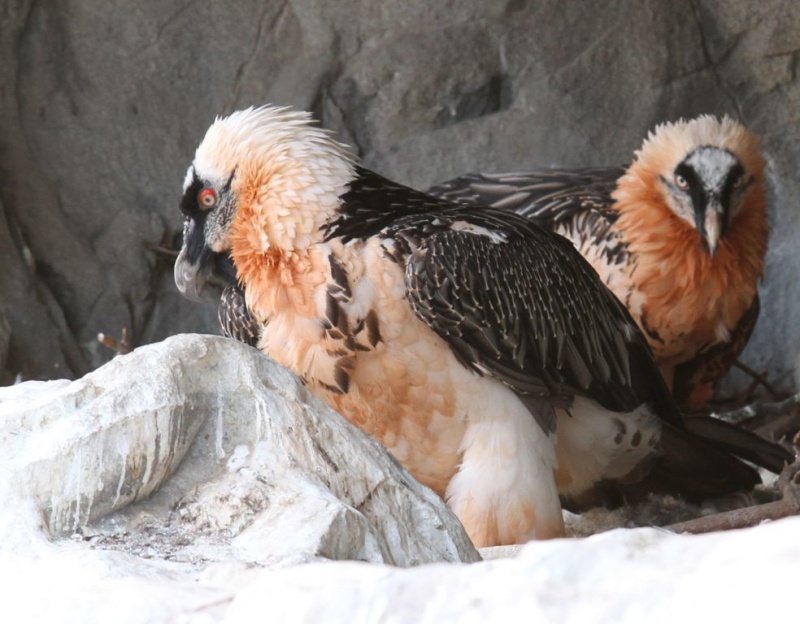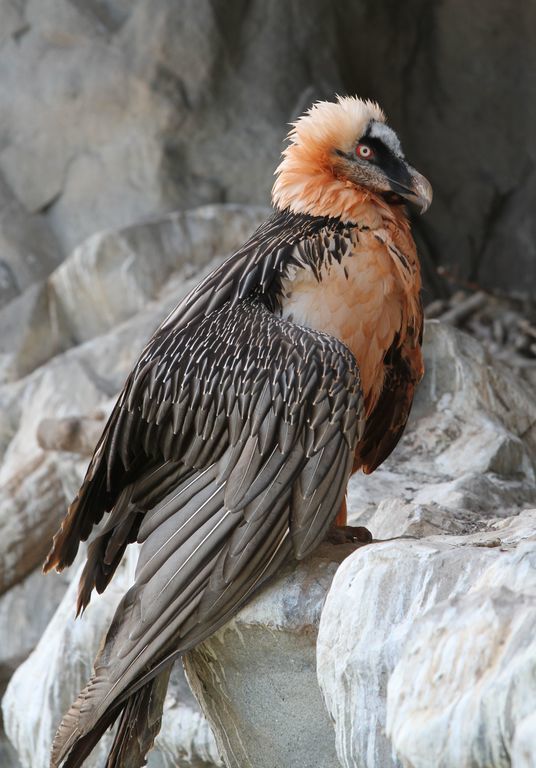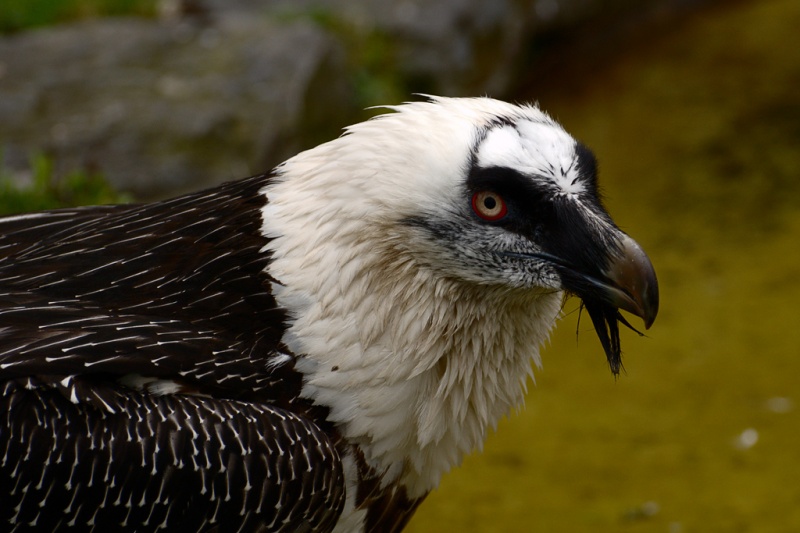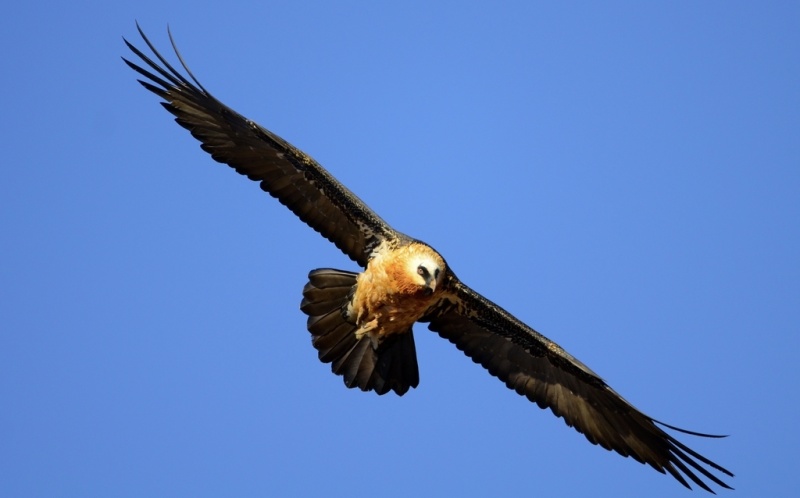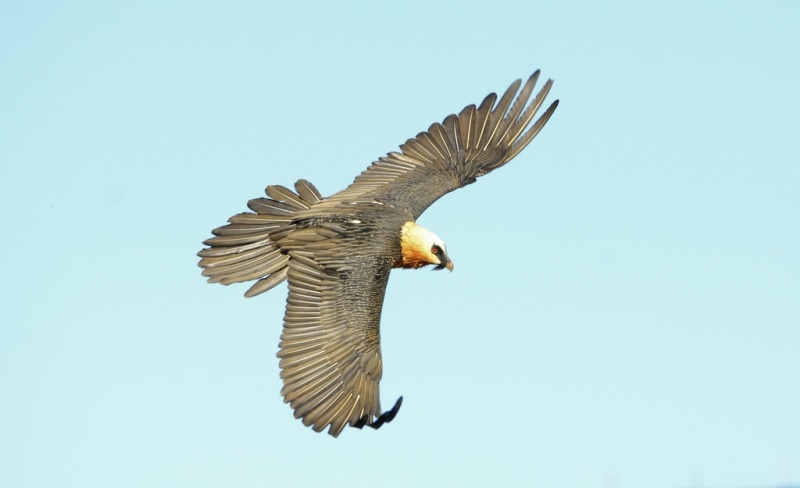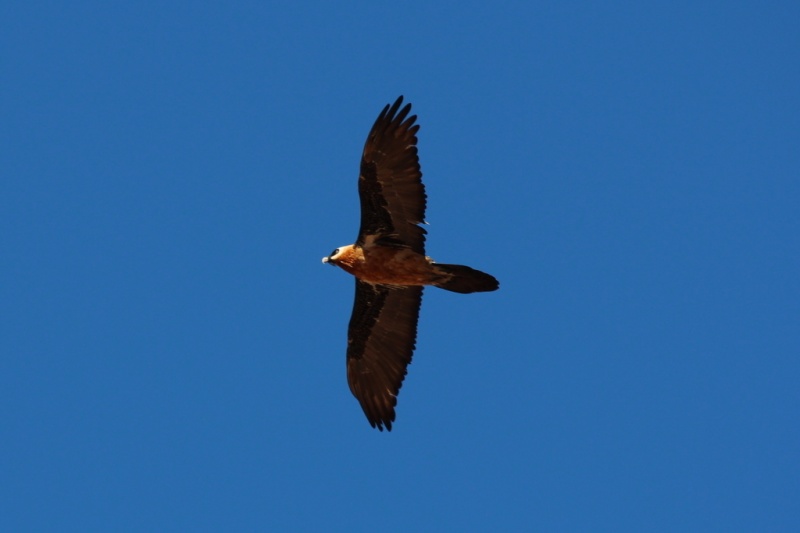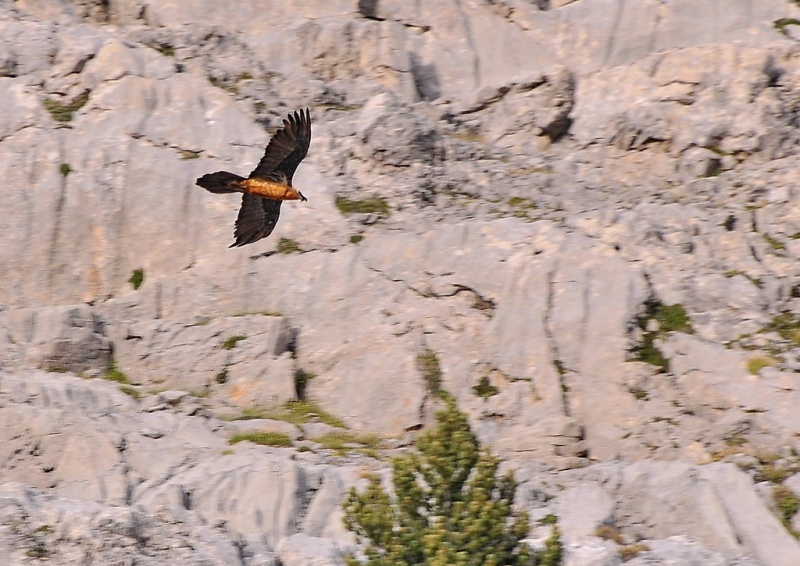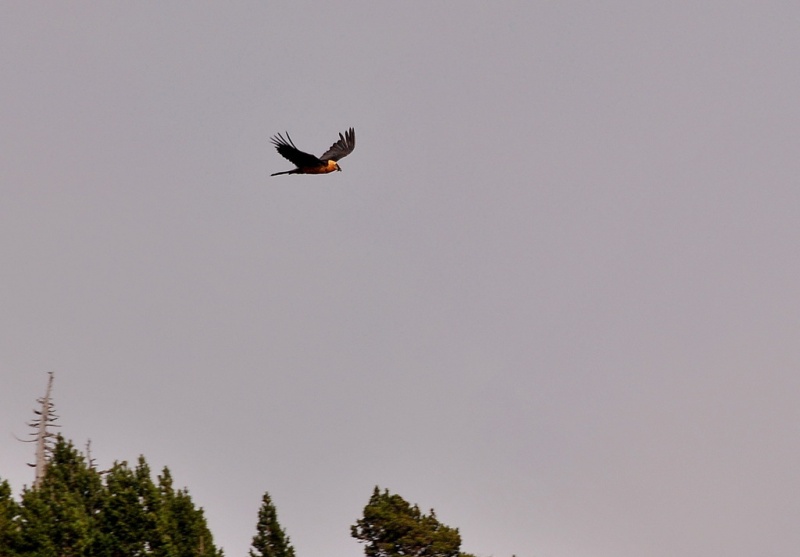Gannet (Morus bassanus)
Bearded Vulture (Gypaetus barbatus)
White with black wing tips and yellow-buff at back of head. Juveniles brown with small pale speckles, white u-shaped rump patch and pale underparts. Fully coloured only after 5 years, and patchy, intermediate plumages often seen. Unmistakable bird at close range or with favorable light, but can be confused with shearwaters at a distance and/or in strong wind. Differs from those by long tail and much longer neck and head. Alternates between powerful, even and shallow wing-beats and glides. Flight becomes more shearwater-like in strong winds.
Sound:Heard mostly at breeding ground. Even, rhythmical series of harsh "harrr, harrr, harrr,".
Social interaction:
Distribution:
Wikipedia: map (se also Xeno-canto below)
Ecology:Birdlife ecology
Links:
Observation.org Latest observations
Image search Flickr NB! May give other species
CCSounds:Recorded by Elias A. Ryberg,http://www.xeno-canto.org ,CC license
Large, long-winged vulture with slender body and long, diamond-shaped tail. Very different flight-silhouette from any other large raptor in the region. Most similar to Egyptian Vulture (Neophron percnopterus), but note very long tail (longer than wings are broad) and pointed wings. Size difference not always apparent. Adult birds unmistakable when plumage characters are visible. Yellowish head with black mask and "beard". Orangy underparts, contrasting with dark back, wings and tail. Immature birds are dark all over, with pale-tipped coverts. Note that young birds have shorter tail and less pointed wings than adults. Wings held flat when soaring, sometimes with tip pointing slightly downwards.
Sound:Display call a thin whistling with several register breaks, reminiscent of Honey Buzzard (Pernis apivorus). A passerine-like trill is also sometimes heard, but generally not a vocal bird.
Distribution:Wikipedia: map (se also Xeno-canto below)
Ecology:Birdlife ecology
Links:
Observation.org Latest observations
Image search Flickr NB! May give other species
CC
 English
English Albanian
Albanian
 Armenian
Armenian
 Bulgarian
Bulgarian
 Catalan
Catalan
 Croatian
Croatian
 Czech
Czech
 Danish
Danish
 Dutch
Dutch
 Finnish
Finnish
 French
French
 Georgian
Georgian
 German
German
 Greek
Greek
 Hungarian
Hungarian
 Italian
Italian
 Latvian
Latvian
 Lithuanian
Lithuanian
 Macedonian
Macedonian
 Norwegian
Norwegian
 Polish
Polish
 Portuguese
Portuguese
 Romanian
Romanian
 Russian
Russian
 Sami : Lule sami
Sami : Lule sami
 Sami : North sami
Sami : North sami
 Sami : South sami
Sami : South sami
 Scientific names
Scientific names
 Serbian
Serbian
 Spanish
Spanish
 Swedish
Swedish
 Ukrainian
Ukrainian


